The Viet Minh rebels led by the communist internationalist Ho Chi Minh, made their claim for independence on September 2, 1945, but this resounding cry for freedom fell on deaf ears throughout the international community.
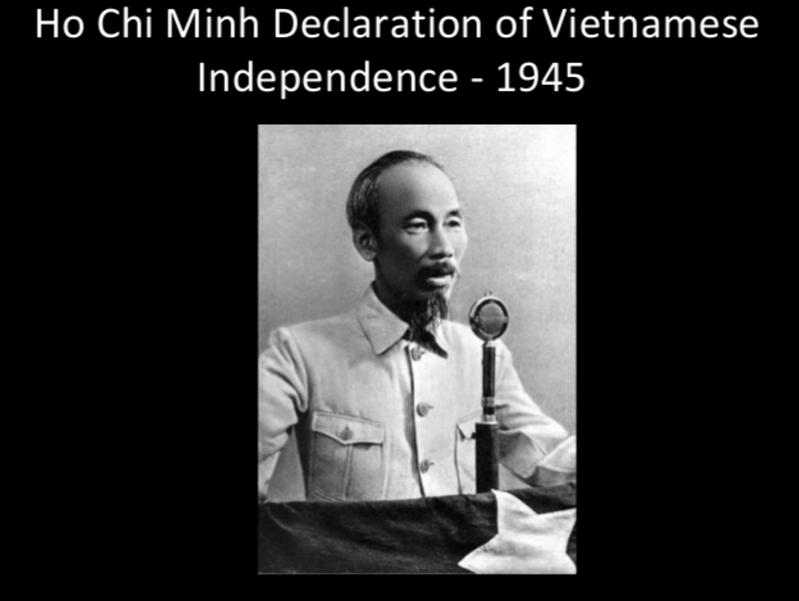
United States felt that Vietnam was not in position to self-govern; rather the United States felt that a protectorate was needed. The French used this as an opportunity to re-establish colonial rule over Vietnam. Furthermore, the French did not recognize Vietnam as an independent state which led to the first Indochina war. High-ranking United States government official Paul Nitze authored NSC 68, which outlined the future foreign policy of the United States against the rise of communism and the treat of Soviet Union.
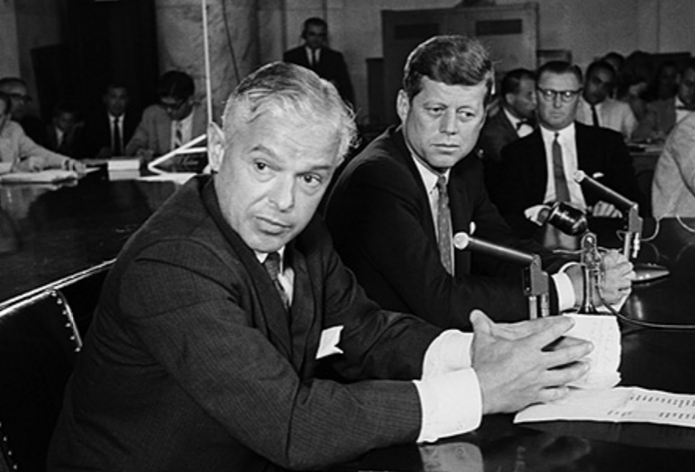
Nitze’s report also takes in account of the events in Vietnam during the first Indochina war which implicated that the United States must reassess its foreign policy in Vietnam to dissolve the expansion of communism in the region.

The British initiated talks in the fall of 1944 with the United States claiming they would support France in their reoccupation of Indochina.
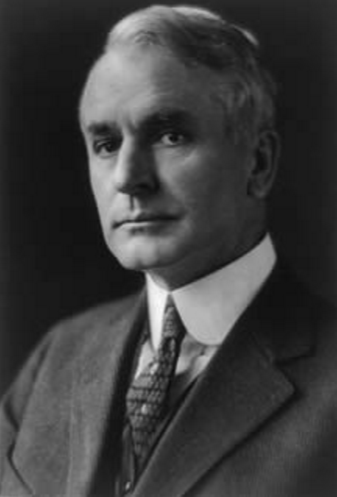
Secretary of State Cordell Hull felt that this was an initiative by the French and the British to re-establish colonial power in Indochina and absolving the United States of any power in policy making within Southeast Asia. This was also seen as an attempt to strengthen the foothold of Southeast Asian Command, particularly for the Dutch, Great Britain, and France. United States policy makers also felt the Chinese are liable to cause geopolitical instability to northern Indochina as well. In 1945 Pres. Roosevelt proposed that France to take a position of trusteeship over Vietnam. Pres. Roosevelt wanted to assist France’s position of trusteeship, but he was also aware that this will be an “exceedingly long period of tutelage” for the Vietnamese to adapt to the economic, political, and social characteristics of the free world. Roosevelt’s vision of trusteeship did not happen as he intended due to his passing in April 1945. Pres. Truman did not continue the vision of trusteeship in Vietnam because to him it wasn’t a critical form of policy for the United States. Roosevelt’s vision of trusteeship in Vietnam was the precursor to U.S. foreign policy that was soon to follow in NSC 68.
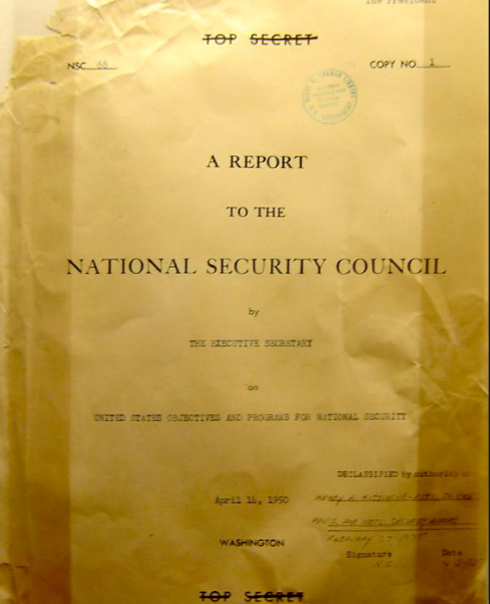
The geopolitical meltdown of Indochina that was underway followed the model that Nitze outlined in his report NSC 68. As the fighting mounted in 1946 the French negotiated with the Chinese that led to the French gaining reoccupation to northern Vietnam. Ho Chi Minh allowed this under the condition that France would recognize Vietnam as an independent Democratic Republic. After many negotiations throughout the summer months, Ho Chi Minh and the French government were unable to come to an agreement, this led to the war continuing. As the battles persisted into 1949, the French gained control of South Vietnam and could install the French controlled puppet and VNA leader Bao Dai. By October 1949 Chinese communist leader Mao Zedong defeats Chiang Kaishek’s Nationalist army to win the Chinese Civil War.
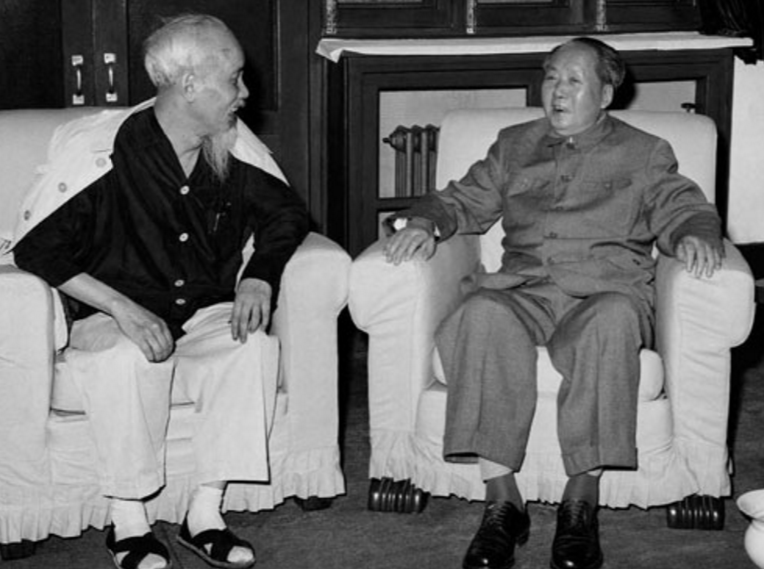
Mao Zedong then formed an alliance with Ho Chi Minh and began to aid him in his fight against the French. In January 1950, the Chinese government along with the Soviet Union recognizes Ho Chi Minh and Vietnam as a Democratic Republic.
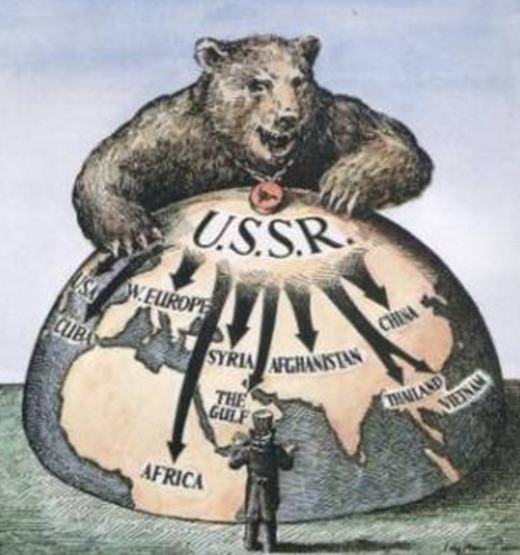
At this point, the South-Eastern region of Asia was completely unstable from a geopolitical standpoint. From an American foreign policy perspective, NSC 68 was needed at this point to shift the geopolitical advantage back into the United States favor.
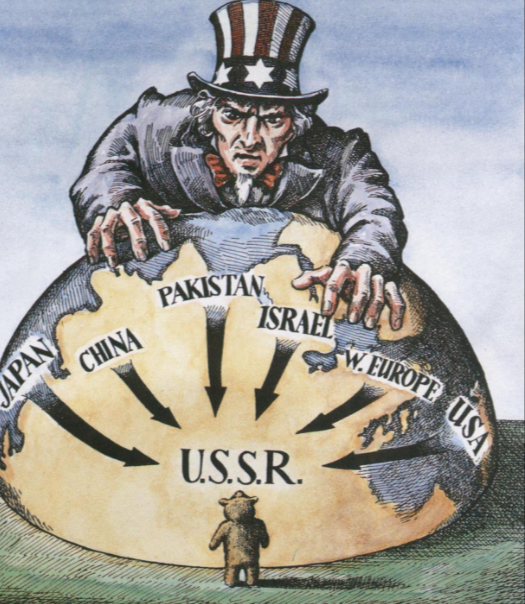
The NSC 68 report by Paul Nitze outlines that the 1st Indochina war did not settle the principle issues in which it was fought over, nor did it strengthened the United States position against communism Eastern Asia. The first thing the French failed to do was bring political unity throughout Vietnam by implementing one political entity and erase to political divisions among the Vietnamese. The second thing the French failed to do in Vietnam was to make the nation independent from any outside political influence by acting as a protectorate to Vietnam. With the alliance of communist China in the Democratic Republic of Vietnam, along with the communist Soviet Union in the backdrop, the United States became very wary about its international position in Southeast Asia. On January 31, 1950, Paul Nitze introduced the document NSC 68 which specifically touches on United States position versus the Soviet Union. The document also proposes solutions to the events of the Indochina war and the perceived Communist threat of Vietnam. Nitze claims that is the United States responsibility is a role of containment in regards to the spread of communist ideas in the far-east.
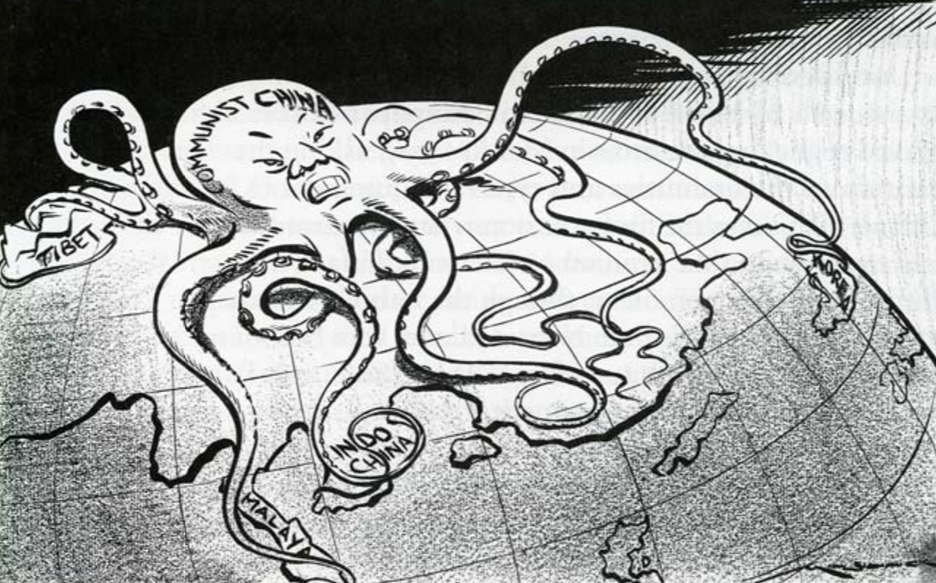
The report suggests that the Soviet Union system exploits colonial peoples and communism has allowed “a backward society to a position of great power,” then Nitze believes the same can be done to Vietnam under the guise of communism. The report also states that an expansion of a new communist satellite would eventually be used to “consolidate communist gains in the far east,” bolstering the Soviet Union’s military and political standing to eventually claim world domination as Nitze claimed. He also believed communism would use Southeast Asia as a Launchpad for future invasions and attacks against the free world.
Since 1945 the United States has attempted to alleviate the political instability of Vietnam in the interest of American foreign policy. With the French failing in their mission of being a protectorate over Vietnam, the United States must now step in and take over the stabilizing mission of Vietnam. With the expansion of communism in Southeast Asia, American foreign policy has shifted because of the fear of these Asian countries becoming an extension of the Kremlin system. NSC 68 has served as the wake-up call for policymakers to take a closer look at the situation in Vietnam. Although NSC 68 targeted the Communist Soviet Union as a primary theme of emphasis, but it also detailed plans for American containment of communism in Southeast Asia as well.
Source: May, Ernest R. American Cold War Strategy: Interpreting NSC 68. Macmillan, 1993.

Check out my other posts:
- @elumni/18th-and-19th-century-european-power-and-influence-over-india-china-and-japan
- @elumni/review-and-asesment-of-the-nazi-films-triumph-of-the-will-hitler-youth-quex-and-jew-suss
- @elumni/review-of-tanzimat-fails-to-heal-a-fallen-empire-by-edward-tundidior
- @elumni/examining-films-of-nazi-germany-the-blue-angel-and-pandora-s-box
